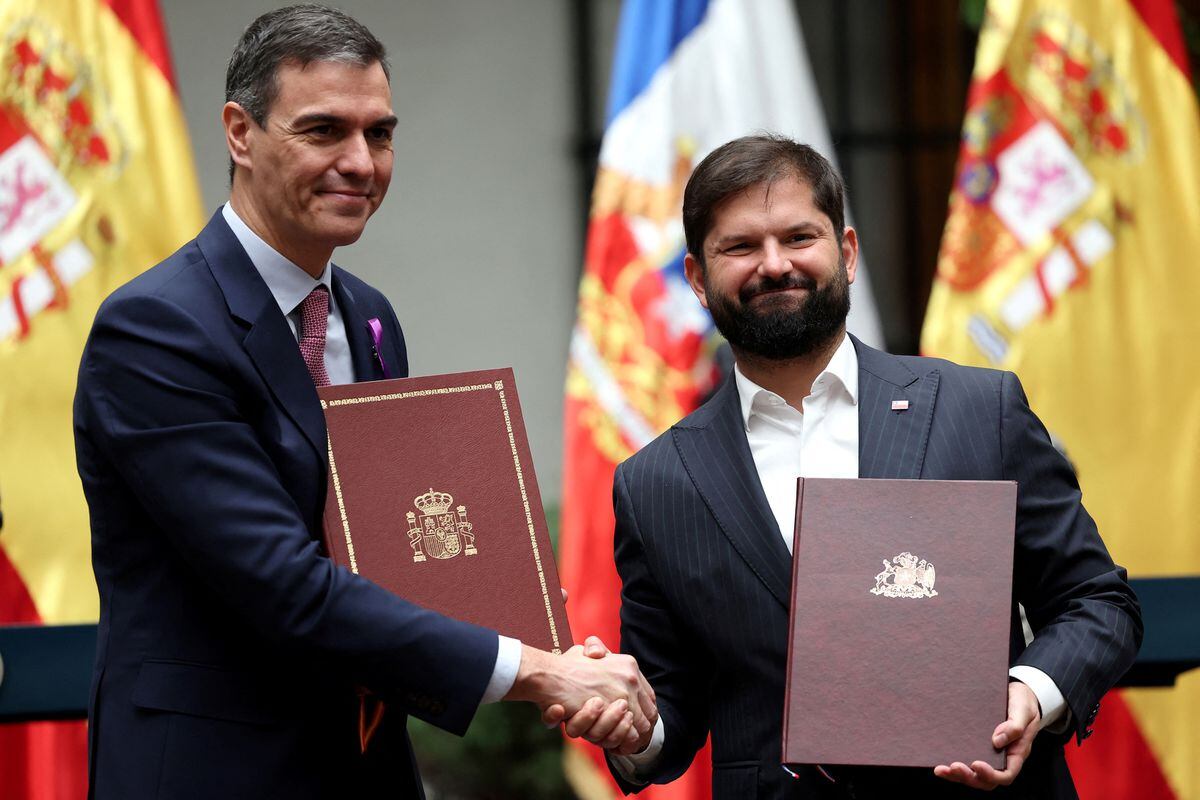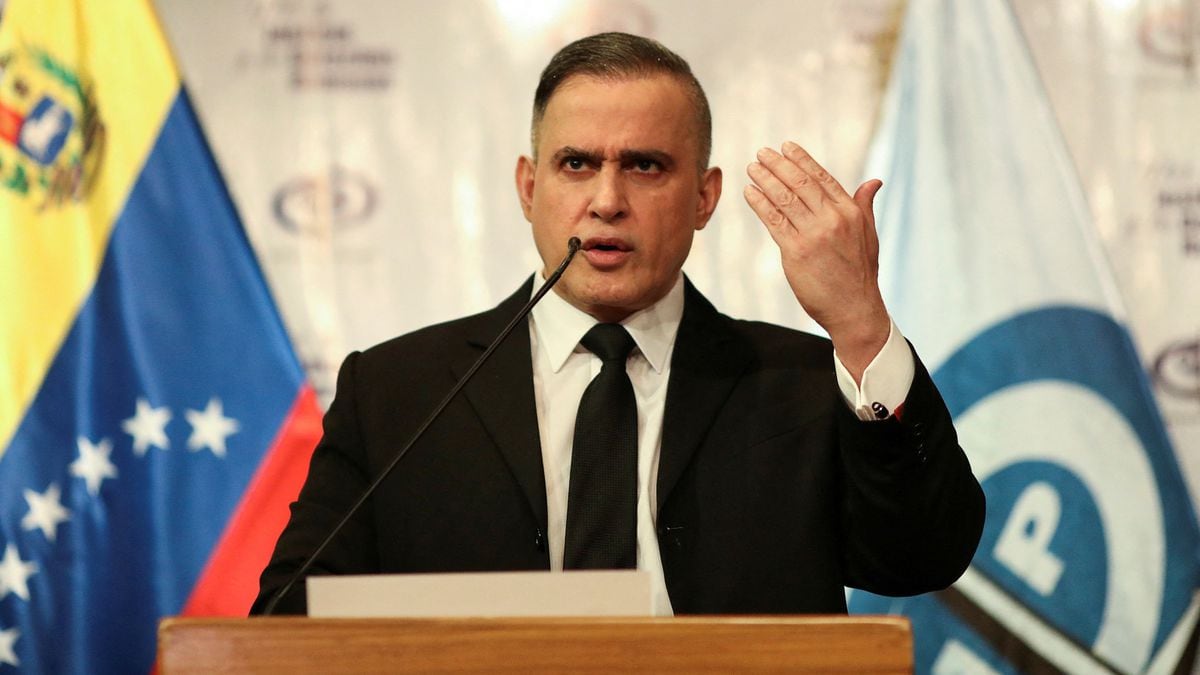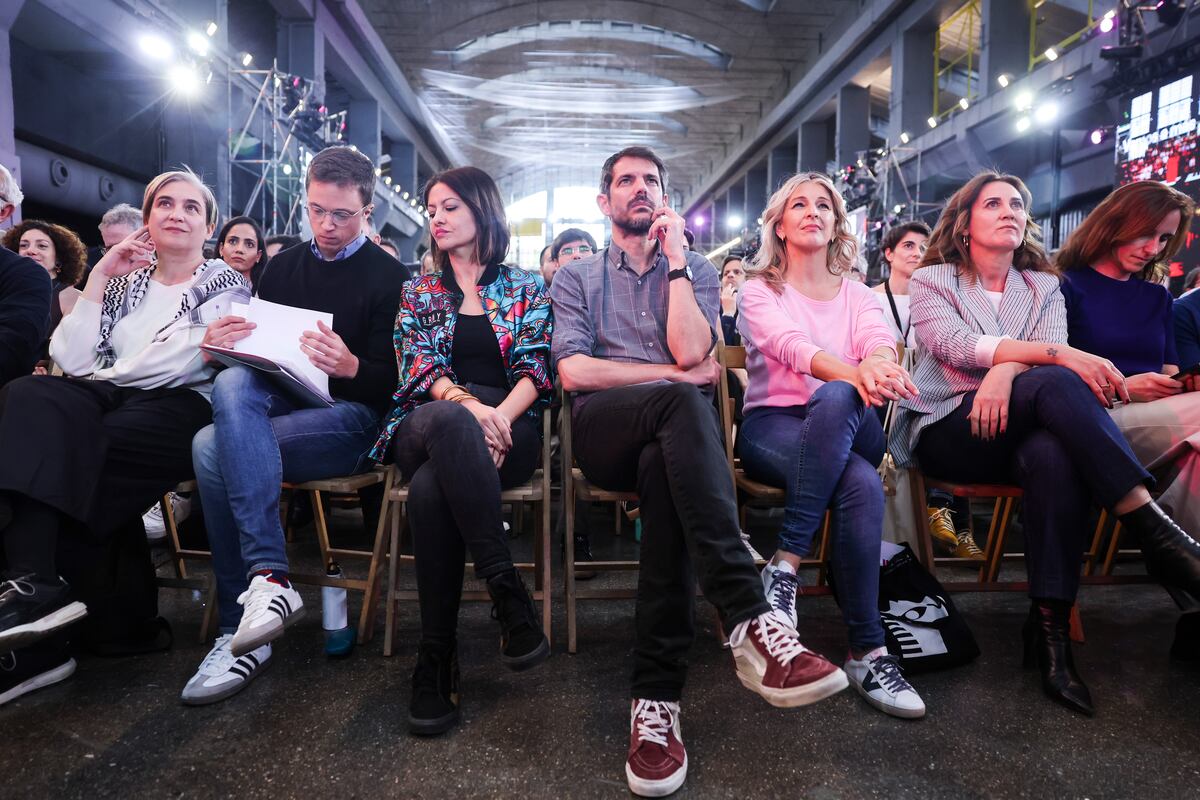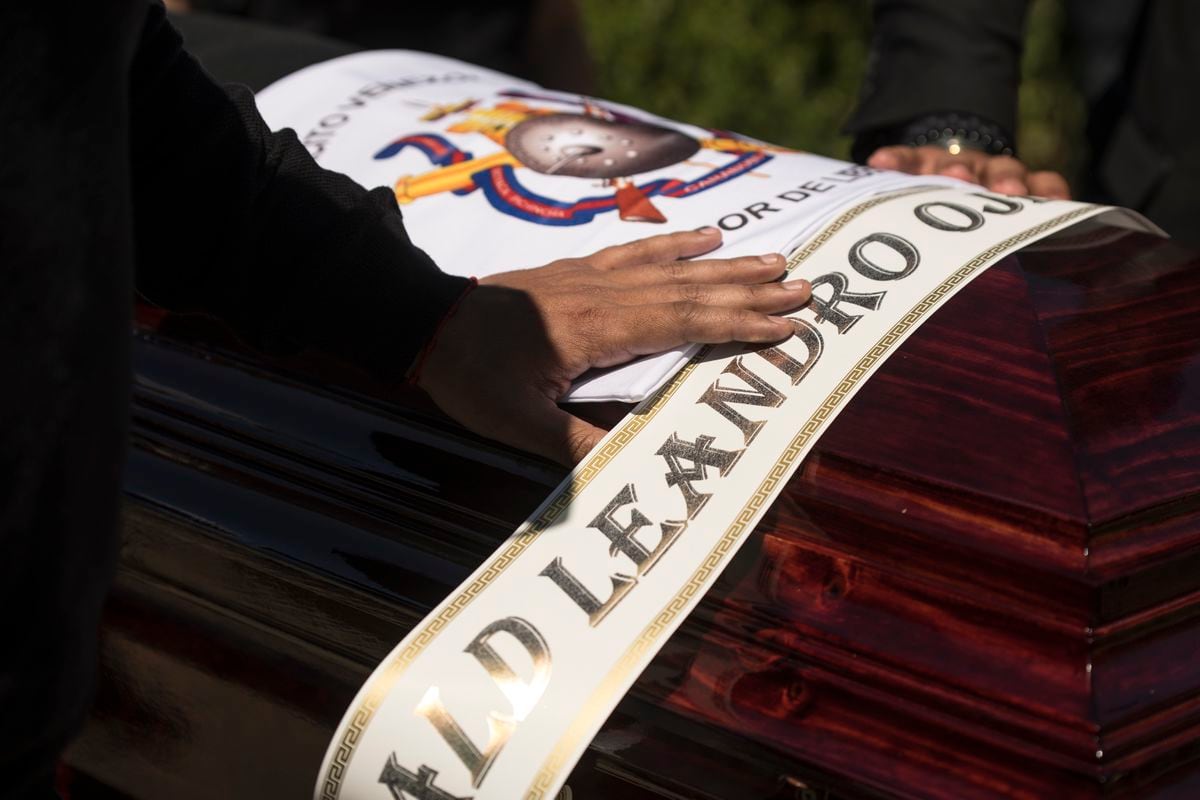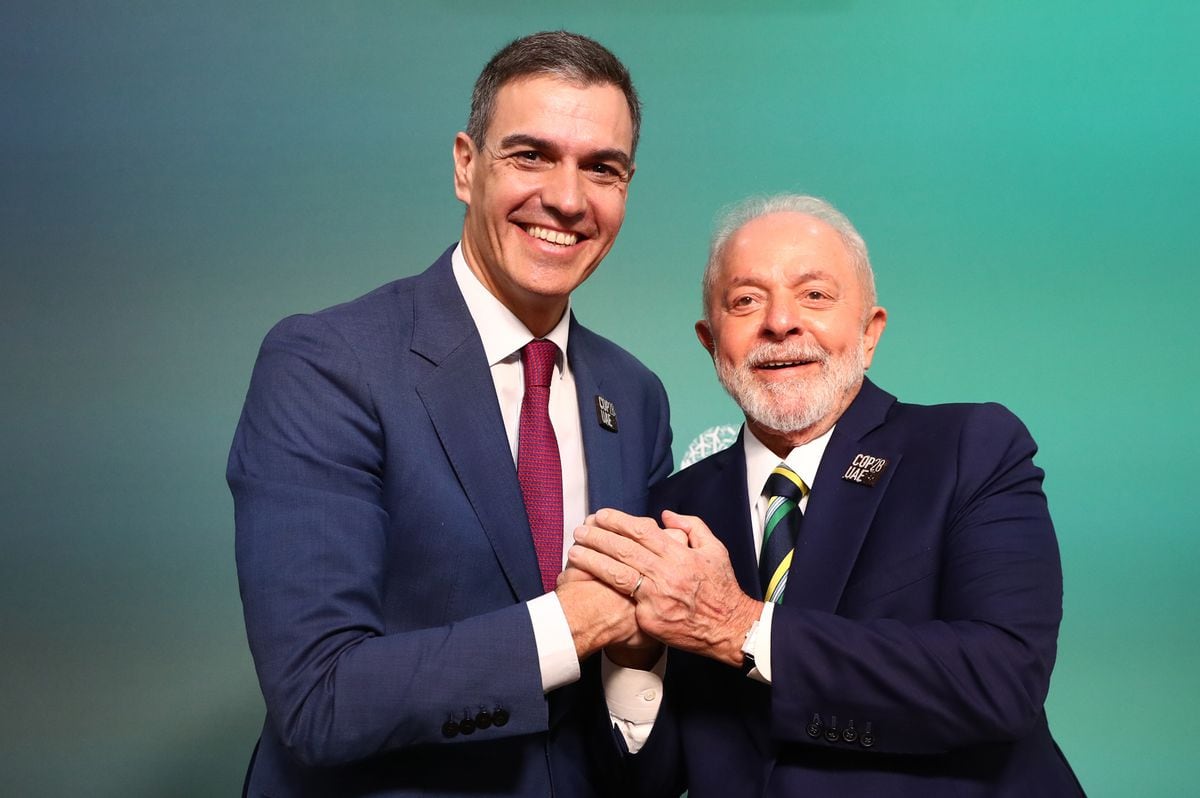The elected president of Chile, Gabriel Boric, maintains a long-standing and close political relationship with the Spanish left and personal links with the faces of his generation, such as Pablo Iglesias and Íñigo Errejón.
Apart from the rivalry between the two that has not declined over time -in 2019, Errejón left the Podemos de Iglesias and founded his own organization, Más País-, the next Chilean president moves comfortably with his Spanish allies, going through stop the local differences: the drift of the party, which sought an alliance with the traditional and communist left (IU) that Errejón did not share;
the less tempered speech that raised the formation or the strategy with the socialist Pedro Sánchez in the failed investiture of 2016 ended up causing the rupture between the two.
On January 9, when Boric was in full formation of his Cabinet, with a maximum tension between moderation and greater radicalism that pushes part of his coalition, he published on Twitter a photograph with an extract from Errejón's book Con todo: de los años fast to the future.
“Revolutionaries prove themselves when they are capable of generating order.
A new order, but an order that gives certainty and that also includes most of those who were against it”.
Key reflection for the times to come: the ability to build a common order.
pic.twitter.com/OaSvoxfEvJ
— Gabriel Boric Font (@gabrielboric) January 9, 2022
This Wednesday, meanwhile, he participated in the third episode of the podcast
La base
led by Iglesias, former vice president of the Government today out of institutional politics, where Boric reiterated the need for breadth: "Structural changes are not possible if they are not majority in society”, assured the leader of the Chilean Broad Front, who will turn 36 next week, just one month after arriving in La Moneda on March 11.
A few days ago I spoke with @PabloIglesias for his podcast @LaBasePublico.
A pleasure to exchange ideas with him again and also show how we want to include Chile again in international matters, emphasizing Latin America.
Link: https://t.co/CF9HUhPE5o pic.twitter.com/cxngu7M4TW
— Gabriel Boric Font (@gabrielboric) February 3, 2022
In the not so distant past, it was Boric and the generation of the new Chilean left who watched the steps of Podemos carefully.
For the general elections in Spain in December 2015, the president-elect filmed a video of support together with Giorgio Jackson – who will be a political minister in his Cabinet – where they declared that they were looking carefully at his experience.
In a 2015 interview with EL PAIS, Boric explained the strong political ties with the formation led by Iglesias and their similarities between the Chilean and Spanish processes: “Bipartisanship, neoliberal consensus, little generational change, demobilization of society, progressive privatization of services basic and social rights.
They watched the territorial deployment and closely followed their theoretical discussions.
Boric said that he had recently read
Construir pueblo
, by Íñigo Errejón and Chantal Mouffe –she is the theoretical inspiration of the Broad Front, at least in its beginnings–, and followed the programs of La Tuerka and Fort Apache, led by Iglesias.
But Boric, although he confidently announced that in five years they would turn the political chessboard – which turned out to be an accurate premonition – he distanced himself from the temptation to imitate the Spanish experience: “We are looking for our own path, without tracing or copying”.
It is precisely what the leader is in Chile: candidate for the presidency for the Approve Dignity bloc, of the Broad Front and the Communist Party, he won the second round against the ultra-conservative José Antonio Kast, expanding his electoral base towards the moderate sectors of the left.
His Cabinet has been a reflection of this bet, with a Social Democrat in the Treasury, the economist Mario Marcel.
Today, it is the Spanish left that is looking closely at Boric, as Errejón explains to EL PAIS. “They have done much better [than us]. The history of the Broad Front is what could have been the history of Podemos if we had made the right decisions”, concludes the Spanish deputy. “It is curious that they were very inspired by us at the beginning and then they continued along the path doing things better and setting a different course that was capable of integrating people who were already convinced of the left and reaching much broader sectors.”
The relationship between Boric and Errejón dates back many years, although the Spanish deputy does not specify a date.
They met in Chile some time ago, but they strengthened ties in 2018, starting with Errejón's participation in Santiago at the closing of the
Full March
congress , of the Democratic Revolution, Jackson's party, Boric's right-hand man.
So, the current leader of Más País was still part of Podemos, but he had been away from Iglesias for years.
The disagreements between the two ended up making coexistence impossible and in 2019, a few months before the regional elections in Madrid, Errejón made the decision to leave the party.
For José Pablo Ferrándiz, director of Public Opinion and Political Studies of Spain, "in the initial Podemos", Iglesias and Errejón formed a "similar tandem" to the one that had been other couples on the left before: Felipe González and Alfonso Guerra or José Luis Rodríguez Zapatero and Alfredo Pérez Rubalcaba.
"Iglesias was the most pro-European and Errejón the Latin Americanist."
His link with the region came from his stays in Bolivia, Argentina, Ecuador or Venezuela.
"That combination of strategies", that of Errejón based on national-populism, "worked very well because they knew how to read an important institutional crisis" that broke out with the 15-M in Madrid, the protest of the indignados, almost in parallel to the university mobilization of 2011 in Chile that was the quarry of Boric's political generation that will arrive in La Moneda in March: Boric himself,
Jackson, Camila Vallejo.
"Without changing the electoral system, they broke bipartisanship," recalls the analyst about the Spanish experience.
Later, those strategic differences were what ended up driving them apart.
In a telephone conversation from Madrid, Errejón, today a deputy in Congress, appeals to the similarities between the trajectories of the two forces, from the leadership in the student movements with critical positions with the center-left Concertación – which he compares with the party system of 1978 in Spain¬– until deciding to equip itself with a political tool. How close is he to Gabriel Boric ideologically? "A lot," he replies. “We both start from a way of seeing politics that privileges national specificities. Our collective trajectories with the rest of our colleagues have always preferred to read the common sense of their countries before the manuals of the left”, he argues.
In Boric's victory, Errejón values his "understanding of the relationship with the past", which he considers that change "is never a tabula rasa" with what was before.
"Winning is always incorporating a part of the adversary, and therefore, Boric has not won only with the votes of the left", affirms the leader of More Country.
“He has had the ability to transcend it with a very transversal will to incorporate many people who come from very different positions.
He has not been the candidate of the unity of the left.
He has been the candidate for the unity of a very large majority of Chileans that includes the left, but that goes further”.
In this sense,
During the last few months, the Spanish left has closely followed the process in Chile. In Podemos, the leadership of the party has campaigned in favor of Boric. In this case, it is the Minister of Equality and
number two
An approach that would go through understanding again with a part of the cadres with which United We Can broke in the past, fundamentally the leader of More Country.
The personal relationship between the also Minister of Labor and Errejón is good and they maintain permanent contact, especially on issues related to labor legislation.
But Díaz does not belong to Podemos, a party in which the wounds with Errejón have not yet healed.
Iglesias himself knows Boric well.
When they have seen each other in Madrid, they have not only talked about politics, but they have shared in personal instances, such as the visit to mythical taverns in the Spanish capital where they have tasted wines from the south of Spain together, as the former vice president has recounted.
Iglesias, who like Errejón have become regular faces in the Chilean media, in an interview on CNN Chile a few weeks ago recognized that in politics "it is very difficult to succeed if sometimes you do not take an uncomfortable position."
Regarding the alliances of the new Chilean president, he appealed to the "talent and ability" of his team to reach agreements.
“In politics, agreements are reached with those who think differently, not with those who think the same as you, there is no merit there.
What they have achieved in this campaign,
United building an international feminist platform, exchanging our agendas and tools between Approve Dignidad and international leaders of La Campora from Argentina, Podemos from Spain, the Galician Nationalist Bloc and the French Left Party pic.twitter.com/eSgnD7F3uK
– Irina Karamanos (@i_krmns) December 22, 2021
In Boric's circle, it is assured that the president-elect has not overlooked the mistakes that Podemos has made in recent years, which has represented an apprenticeship for the Chilean left.
But the ties are still very strong.
The Chilean's partner, Irina Karamanos, who will serve as first lady in the next government, posted a photo on Twitter surrounded by women a few days after the victory.
"United, putting together an international feminist platform, exchanging our agendas and tools between I Approve Dignity and international leaders of La Cámpora from Argentina, Podemos from Spain, the Galician Nationalist Bloc and the French Left Party," said the feminist leader of the Social Convergence party, where she is a member. the future president.
Subscribe here to the EL PAÍS América
newsletter
and receive all the key information on current affairs in the region


/cloudfront-eu-central-1.images.arcpublishing.com/prisa/LM5S5QYHYJDZ2DY5PMOYM3DWMU.jpg)

/cloudfront-eu-central-1.images.arcpublishing.com/prisa/IF24TOV3MFHHROUE2LMCLODXWI.jpg)
